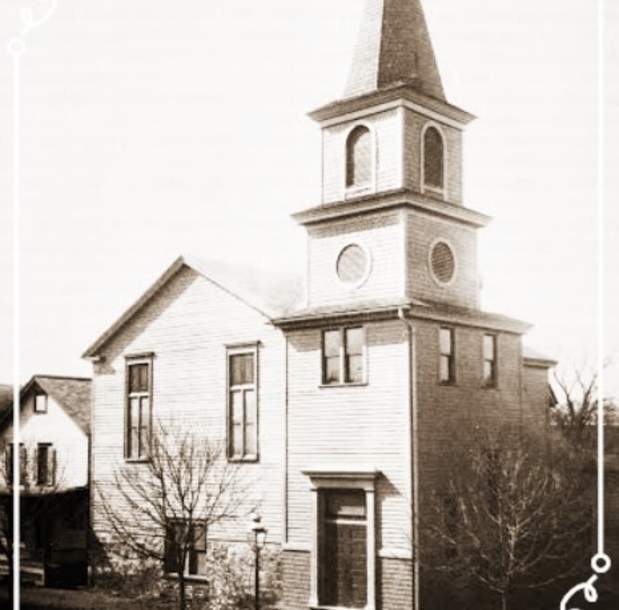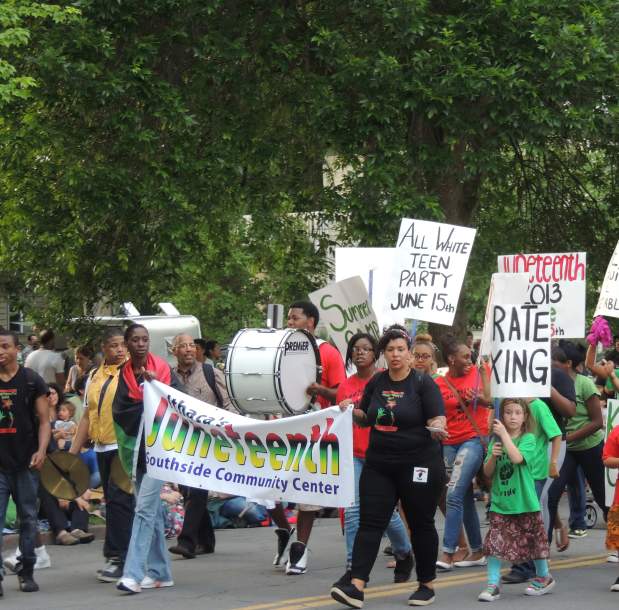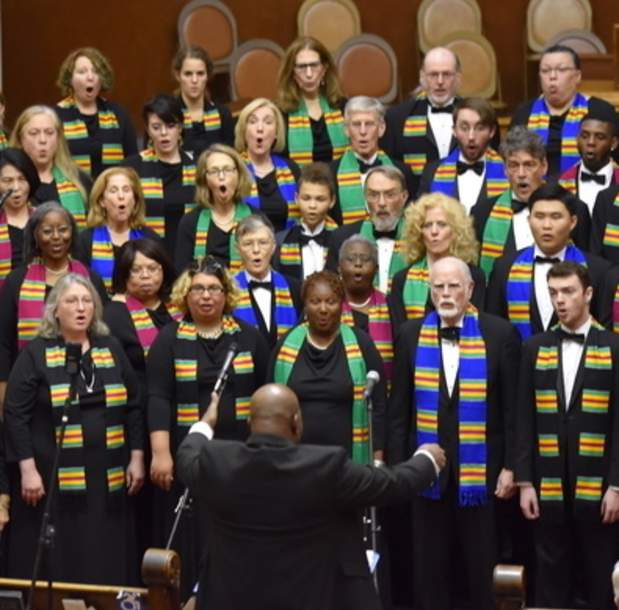St. James AME Zion Church
St. James AME Zion Church in Ithaca.
Among the historical highlights is the St. James AME Zion Church, on Cleveland Avenue in Ithaca, which was built in 1833 and is believed to be the oldest church structure in Ithaca. It is also one of the first AME Zion churches in the country. St. James was a station on the Underground Railroad and was visited by notable figures in Black history, including Harriet Tubman and Frederick Douglass.
Ground was broken for the Southside Community Center, on South Plain Street in Ithaca, in 1936 and First Lady Eleanor Roosevelt attended the dedication ceremony in 1937. Started as an organization to empower Black women, it later opened membership to men and continues to be an active community resource center, highlighting the contributions of peoples of African descent in the Ithaca and global community.
In Trumansburg, a historical marker highlights the former home of Lloyd Dorsey, believed the be the first Black person to vote in the town of Ulysses. He was self-liberated from enslavement in Maryland and came to Trumansburg, then met Nancy Hemans, a free Black woman from Caroline, and together they had nine children. In 1851 they purchased an acre of land for $430, which met the requirement for Black males to own property valued at a minimum of $250 to be able to vote.
The first Black collegiate fraternity began in Ithaca, established in 1906 by seven Black Cornell University students on North Albany Street, in the Dennis-Newton House. Today there are more than 850 chapters of the Alpha Phi Alpha fraternity around the world.
A notable Ithacan is Dorothy Cotton, who passed away in 2018, for her work with Martin Luther King Jr. and the Civil Rights movement. She was part of the inner circle of the Southern Christian Leadership Conference, serving as educational director of the Citizen Education Program. She is buried in Pleasant Grove Cemetery and the Dorothy Cotton Jubilee Singers honor her with their performances.
Author Alex Haley was born on Cascadilla Street in 1921, and became well known for his milestone works, “Roots: The Saga of an American Family” and “The Autobiography of Malcolm X.” A memorial pocket park exists at the home of his birth, and the pool next to the Greater Ithaca Activities Center is named in his honor.
These landmarks and people merely scratch the surface of Black history in Tompkins County. The History Center has a wealth of resources to share, both at its location in the Tompkins Center for History and Culture in downtown Ithaca and online.
In addition to the online information that includes digital presentations and audio interviews, there are self-guided walking tours available through the PocketSights app. Among the tours available are The Southside Loop (Ithaca Heritage), Black History in Ithaca (Cornell University Press), Webb Family History (The History Center in Tompkins County) and Sisters of Change (The History Center in Tompkins County).
From restaurateurs to designers, we encourage you to visit these Black-owned businesses in our community.


